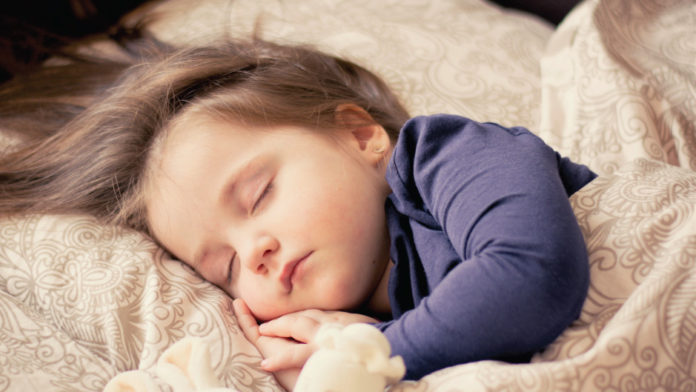It’s 8 o’clock in the morning. Starbucks is full of people waiting for their coffee to start the day. Among the crowd, you may easily spot sleep-deprived parents or students ordering extra shots of espresso to keep themselves awake. But, they aren’t the only ones with sleep issues.
Research shows that up to 25% of children in Canada suffer from sleep problems. They may have a hard time settling, falling asleep and staying asleep. This is referred to as behavioral insomnia.
“That’s highly concerning because studies show even a small amount of sleep loss is associated with behavioral difficulties or learning disabilities,” says Dr. Wendy Hall, a Professor at the University of British Columbia School of Nursing.
Getting quality sleep is crucial for children not only for their own good but for the good of the entire family. According to the Canadian Sleep Review 2016, 60% of Canadian parents claim that they get better sleep when their children sleep well.
Yet, only a few children receive proper treatment for sleep problems.
A study published in the journal Sleep Medicine reveals that physicians may frequently use pharmacotherapy to treat children with sleep issues, but there is minimal safety data and very limited indications for the use of pharmacotherapy to treat pediatric insomnia.
Unlike pharmacotherapy, behavioral treatment options have proven to work. But very few children receive them because many health care providers don’t have the training to provide these treatments. In fact, the study showed that only 20% of the surveyed physicians received proper training in treating pediatric sleep disorder. This indicates the need for evidence-based guidelines and regular physician training.
In the meantime, a group of sleep experts across Canada, many with kids themselves, have come together to develop an online program called “Better Nights, Better Days” (BNBD). Funded by the Canadian Institutes of Health Research (CIHR), the BNBD program provides evidence-based strategies to help children sleep better.
The program takes a month to complete and all you need is an internet connection and an email address. Parents and children are required to complete several video exercises online that cover elements of healthy sleep, common sleep problems, a sleep diary, and other methods to help children develop better sleeping habits.
Currently, BNBD is recruiting Canadian parents to participate in an evaluation of the program. Participation is free of charge and will be rewarded with a cash stipend of $100. If you are a parent with a child between the ages of 1 and 10 who is suffering from sleep difficulties, you can register here.
Let’s all work to get a good night’s sleep.








































